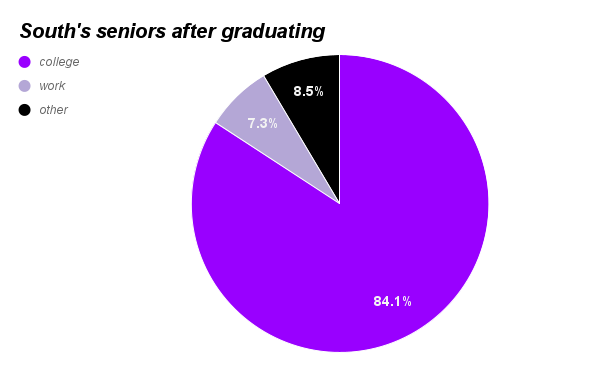Money, stress, essays, forms. It’s that time of year: scholarship season!
The task of applying to college can be daunting, made even more so by the looming shadow of financial costs and possible debt. However, there is a solution to this that goes by the name of scholarships. Whether scholarships granted for academic and personal merit or granted on account of need, scholarships have become integral for paying for college. But how do you find scholarships? How can you ensure the scholarships you’re looking at are legitimate? Optimist has compiled A Guide to Scholarships to aid your application anxiety.
One of the best places to start on your scholarship search is the South scholarship page on the South homepage. Counselors are directly contacted about scholarships, with any scholarship they hear word of going onto the page. This website has scholarships varying from school specific scholarships to statewide scholarships, and the page is updated frequently during the scholarship season.
Other good scholarship resources include South counselors, parents or friends (especially those who have recently gone through the college process) and “Learn More Indiana.”
“Call the scholarship department or admissions office of whatever college you’re looking at and they can direct you towards some pretty great resources specifically for your school,” senior Will Davis said.
Once scholarships have been found that meet your criteria, it is important to make sure that these scholarships are not fraudulent.
“Starting on those web pages that are state based and government based [helps because] those scholarships have already been vetted, so you can trust those ones a little more,” guidance counselor Julia Puntarelli said.
“Are they sending you to a website with no information on it? The low effort looking ones are not always safe,” Davis said.
Most colleges require a completed FAFSA (Free Application For Student Aid) and CSS (College Scholarship Service) Profile for financial aid consideration. This document is perhaps one of the most important documents, and it should be filled out with a parent or guardian. Students are automatically considered for a university’s merit scholarships when they apply to said institution. These scholarships are normally G.P.A.(Grade Point Average) and test score dependent. Some universities offer additional merit scholarships that students need to apply for, so make sure to check your universities’ policies.
“They sort of just give you money if you academically achieve,” Davis said.
One of the most important parts of the scholarship process is the submission step, you can’t get any money without submitting your application, easier said than done.
“I push people to get things done by that Nov. 1 deadline,” Puntarelli said. “That way, if you do pass that deadline, you actually have months to get things done.”



